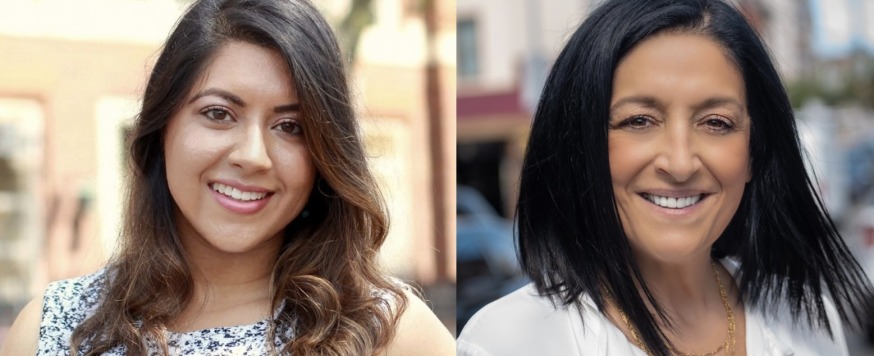
Council District 32 candidates Felicia Singh (D) (left) and Joann Ariola (R) (right) (via respective campaigns)
Aug. 16, 2021 By Allie Griffin
Queens council candidates who won hard-fought primary elections in June are now starting to focus on the November general elections.
Winners of the Democratic primaries who secured victories against often-long lists of candidates will now need to beat off Republican nominees and other challengers in the Nov. 2 general election.
The majority of Queens Democrats already have known Republican, independent and/or conservative opponents to fend off. Out of the 15 Queens council races, 13 Democratic candidates will face other names on the ballot.
Only two Democratic candidates — incumbent Council Member Francisco Moya in District 21 and Nantasha Williams in District 27 — do not have challengers.
Democratic candidates are expected to win easily in most Queens races, although there are two races — District 32 and District 19 — that are likely to be more competitive.
The race to represent the 32nd council district — which is currently the only Republican-held Council seat in Queens — is expected to be the most competitive race in the borough.
Many Democrats across Queens are coming together to try to flip the District 32 seat, which covers the neighborhoods of Belle Harbor, Breezy Point, Broad Channel, Howard Beach, Lindenwood, Neponsit, Ozone Park, Richmond Hill, Rockaway Park, Roxbury, South Ozone Park, West Hamilton Beach and Woodhaven.
The seat is currently represented by Republican Council Member Eric Ulrich, despite the number of registered Democrats in the district being approximately three times that of registered Republicans.
As of February 2021, there were 51,460 active Democrats and 16,881 active Republicans in District 32, according to the city’s Board of Elections (BOE).
The district is roughly split along geographic boundaries.
The northern portion of the district, Ozone Park and surrounding neighborhoods, has large immigrant communities — including Latino, Indo-Caribbean and Punjabi populations — and mostly voted for President Joe Biden in the 2020 election.
The southern part of the district comprised of Broad Channel, Belle Harbor, Howard Beach, Rockaway Park and Breezy Point is majority white and voted heavily for former President Donald Trump.
Queens Democrats are now rallying behind Felicia Singh, who narrowly won the June primary.
Singh, an educator and lifelong resident of Ozone Park, won the primary with 52.5 percent of the vote after three rounds of ranked-choice voting — beating attorney Michael Scala.
Scala won the Democratic primary in 2017, but ultimately lost to incumbent Ulrich in the general election.
Singh is hoping she will be more successful in flipping the seat this November.
She will be running against Joann Ariola, who is the chair of the Queens County GOP and a longtime civic leader in Howard Beach. Ariola won the June Republican primary — one of four Republican primaries held for Queens council seats — with 82 percent of the vote.
Singh would be the first Guyanese and Punjabi person to represent District 32 if she were to win. She believes that she appeals to hardworking immigrants, adding that she knows their struggles firsthand.
She was able to tap into this constituency to win the primary.
“My campaign included folks in the voting process who were never spoken to before — and we did it in multiple languages, with a platform and policies that center the experiences of immigrants and working-class people,” Singh told the Queens Post after winning the primary.
She said the “moderate status quo leaves too many people behind and struggling” in the district.
Ariola, meanwhile, said she has been working on the ground to help residents from all over district — north and south — for more than 30 years.
“I know what my neighbors want and I know what my neighbors need and that’s what sets me apart,” she said. “It’s the experience, the relationships, the alliances and the ability to get things done because I have gotten things done in the past and I want to continue that work at the City Council.”
Ariola and Singh will also face a third candidate, Queens Community Board 9 Chair Kenichi Wilson. Wilson is running as an independent and will appear on the “Community First” party line.
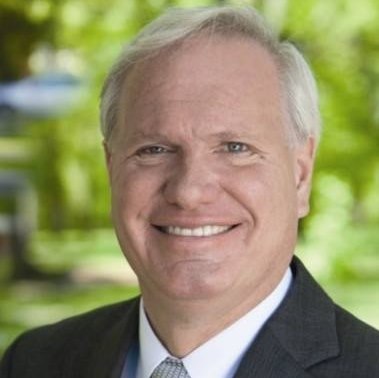
Tony Avella (Tony Avella for NYC)
While it is not expected to be as competitive as the District 32 race, the District 19 race is likely to be closer than others in the borough.
Tony Avella, a Democrat who represented the district more than 10 years ago, is likely to win the seat, although residents have elected a Republican in the past.
The seat was represented by Republican Daniel Halloran from 2009 to 2013, before Paul Vallone — the democratic incumbent — was elected in 2013.
The district covers the neighborhoods of Auburndale, Bay Terrace, Bayside, Beechhurst, College Point, Douglaston, Flushing, Little Neck, Malba and Whitestone. Many residents, particularly in Whitestone and College Point, voted for Trump in 2020.
Avella, the Democratic primary winner, will face two challengers in November.
He will appear on the ballot next to Vickie Paladino, who won the Republican primary, and John-Alexander Sakelos, a professional stage actor, union member and professor who won the Conservative primary.
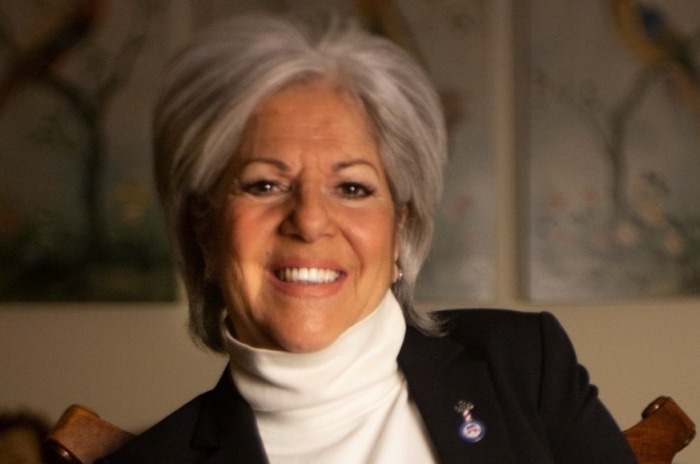
Vickie Paladino, Republican candidate for District 19 (Photo: Vickie Paladino for NYC)
Paladino, a civic leader and small business owner from Whitestone, made headlines when she led an unmasked conga line at the Whitestone Republican Club party last December.
Meanwhile Avella, who is also not without controversy, is one of a handful of former council members seeking a council spot yet again.
He held the same seat from 2002 to 2009 before going on to serve in the State Senate. While in the senate, Avella joined the Independent Democratic Conference (IDC) — a controversial break-away group that formed an alliance with Senate Republicans — which put him out of favor with the Democratic party. John Liu defeated him in 2018.
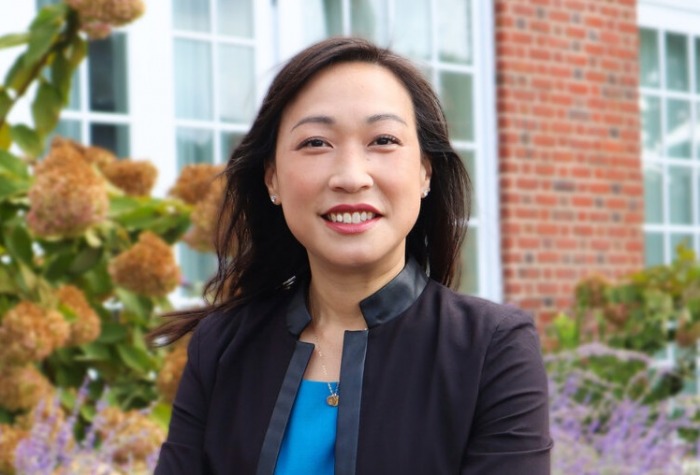
Linda Lee for NYC
Districts 19 and 32 are two of the four districts in Queens where both the major parties held primaries in June.
District 23 was also an area where both the Republicans and Democrats held primaries.
Linda Lee, the president and CEO of Korean Community Services of Metropolitan New York (KCS), won the Democratic primary in a tight race — narrowly beating Jaslin Kaur in a seven-candidate field. She will face James Reilly, the Republican primary winner who beat Alex Amoroso.
Nextdoor, District 24 also had two primaries. Incumbent Council Member James Gennaro won the Democratic primary and will run against Timothy Rosen — the Republican primary winner who beat Angelo King. There will also be a Conservative candidate, Mujib Rahman.
Gennaro won a special election in February to replace Rory Lancman, who left to take a position in Gov. Andrew Cuomo’s administration. He beat out several candidates in that race including Rahman.
Gennaro is also another candidate to make a comeback. He held the same council seat from 2002 until 2013.
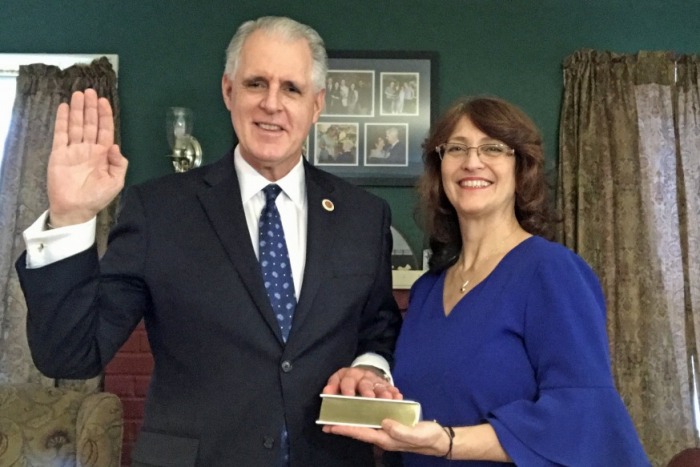
James Gennaro being sworn in as a council member following his victory in a special election in February (Twitter)
Gennaro is one of four incumbents who will face a challenger.
Council Member Selvena Brooks-Powers, who also recently won her seat in a special election, will go up against Republican Vanessa Simon for the District 31 spot.
Council Members Adrienne Adams and Robert Holden will defend their seats representing Districts 28 and 30 respectively against Republican candidates as well.
Adams will face tax accountant Ivan Mossop Jr., who previously ran against her for the seat, and Holden will face attorney John Spataro.
Spataro, however, was nominated by the GOP to serve on the Queens Supreme Court last week and is likely to withdraw from the District 30 race.
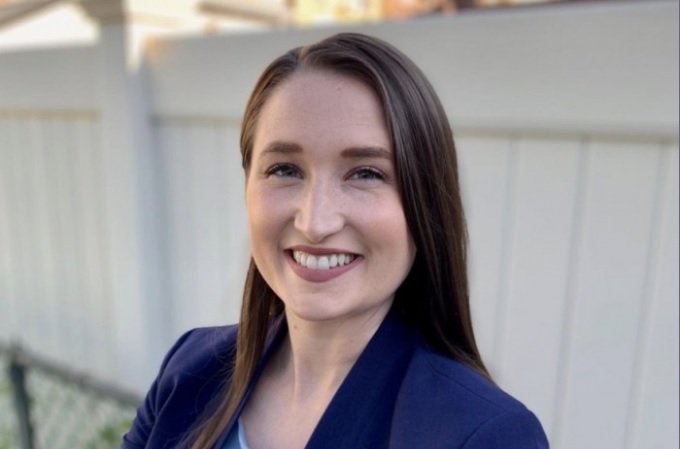
Felicia Kalan (Felicia Kalan campaign via Instagram)
Several Democrats—like Adams and Holden—are in races against Republican or independents who didn’t have to compete in primaries.
Tiffany Cabán, the Democratic primary winner in the District 22 Astoria seat, will be running against challengers who were not in a primary.
Republican Felicia Kalan, an Astoria resident and freelance consultant, and Green candidate Edwin DeJesus, an Astoria native and organizer, are also vying for the seat, come November.
The winner of the District 22 general election will take office immediately — instead of on Jan. 1, 2022 — to fill the Council vacancy left by Costa Constantinides.
The District 20 race, which covers Flushing, is another where the Republican challenger didn’t have to compete in a primary. Democrat Sandra Ung, an attorney, will compete for the seat against the Republican Yu-Ching Pai, who is an accountant.
District 25 residents, meanwhile, will see four names on their ballot in the Jackson Heights-Elmhurst race come November.
Democratic primary winner Shekar Krishnan, a civil rights lawyer, will be up against Republican Shah Shahidul Haque and independents Fatima Baryab and Suraj Jaswal.
Baryab, co-founder of nonprofit SUKHI NY, ran in the Democratic primary as well and came in fourth place out of eight candidates.
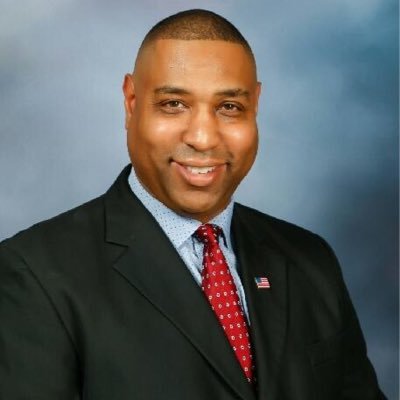
Marvin Jeffcoat, Republican candidate for the 26th Council race (twitter)
In District 26, Democratic primary winner Julie Won is running against Republican Marvin Jeffcoat in November for the western Queens seat.
Jeffcoat is an army veteran and Woodside resident who unsuccessfully ran against Council Member Jimmy Van Bramer for the same seat in 2017. He also took on Michael Gianaris in 2016 for a state senate seat but lost.
In District 29, LGBTQ activist Lynn Schulman, an attorney who works at the Office of the City Council Speaker, won the Democratic primary and will be up against Conservative Michael Conigliaro, a law office manager and Rego Park resident.
Lastly, the winner of the Democratic primary for the cross-boroughs District 34 seat, Jennifer Gutierrez — the chief of staff of current Council Member Antonio Reynoso — will face two independent candidates, nonprofit administrator Terrell Finner and small business owner Lutchi Gayot.
Gutierrez won the primary in a landslide with more than 79 percent of the vote. Gayot ran in that primary, but came in last behind Gutierrez and two other candidates.
The map below highlights all candidates — Democrats, Republicans, Conservatives and Independents — running in each district.
The general election winners will serve a two-year term beginning Jan. 1, 2022. They can run again in 2023 for another two-year term.
One Comment

Queens Republicans are on the way to political extinction, According to the New York State Board of Elections, as of February 21, 2021, there are 807,187 Democrats, 139,385 Republican, 5,504 Conservative, 3,412 Working Family, 29,619 Other political parties and 282,539 Blank (voters that express no party affiliation) for a total of !,267,646 active enrolled voters.
The numbers just don’t afford Republicans the opportunity to elect anyone to public office, thus making them irrelevant in the General Election. Many State Assembly districts no longer have active GOP political clubhouses. Hundreds of Queens Republican county committee positions are vacant. There are few volunteers to circulate nominating petitions which are required to place candidates on the ballot or assist candidates in running campaigns. In many cases, candidates are just placeholders on the ballot. They have no funding or volunteers and just go through the motions knowing in advance that they will lose by large margins. As a result, they are unable to mount any serious challenges to incumbent Democratic Party public officials or open seats with no incumbent. Democrats have a free pass in the November General Elections.
Voters will have to look elsewhere for alternatives to the Queens County Democratic Party monopoly.
Larry Penner